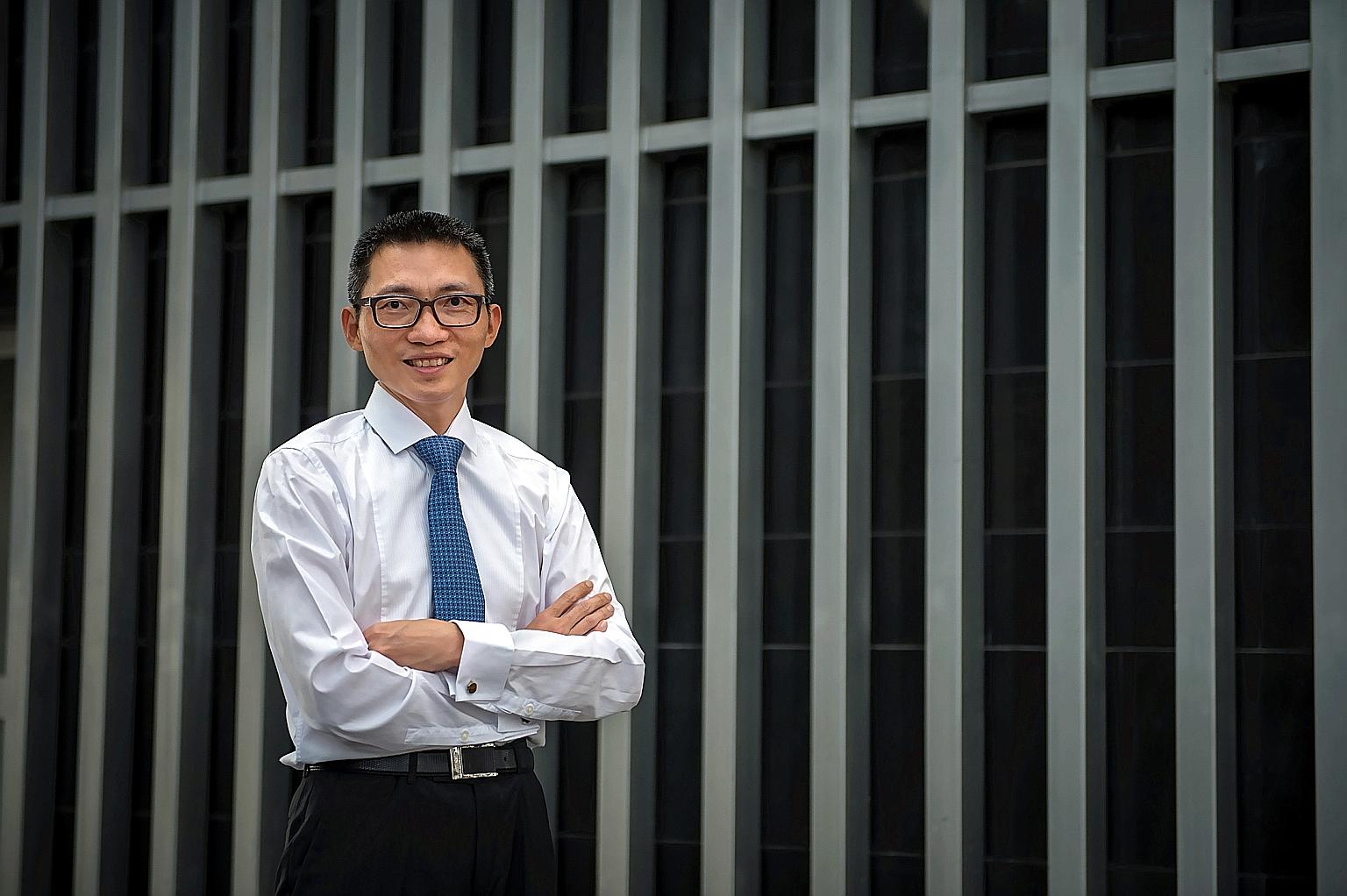Education 'can solve society's woes'
Chinese Internet pioneer's belief leads him to set up $5.3m prize to drive change in field
Sign up now: Get tips on how to help your child succeed

The Yidan Prize, worth $5.3 million and set up by Chinese philanthropist Charles Chen Yidan (above), is open to individuals worldwide so it can have a wider influence and spur more people in the education field to adopt better teaching and learning practices.
PHOTO: COURTESY OF YIDAN PRIZE FOUNDATION
Change in education is the slowest among all societal reforms to take effect, but it yields the most progress for society.
Chinese philanthropist and Internet pioneer Charles Chen Yidan, 45, believes so strongly in this that he has personally set up the largest education prize of its kind.
The Yidan Prize, which is worth HK$30 million (S$5.3 million) and was launched in Hong Kong last month, is the latest in a string of education initiatives from Mr Chen.
In 2009, he invested in Wuhan College at China's Zhongnan University of Economics and Law. Last year, he donated two billion yuan (S$415 million) to turn the college into a private non-profit university and to build a new campus for it.
In March this year, he donated US$1 million (S$1.36 million) to set up a scholarship to fund Chinese students eligible to study at the Stanford Law School in the United States.
Speaking to The Straits Times last month, Mr Chen, who is one of five co-founders of Chinese social media and Internet giant, Tencent, said previous education projects benefited certain communities but were limited in their reach.
The Yidan Prize is global so it can have a wider influence and spur more people in the education field to adopt better teaching and learning practices, he said.
He hopes the award will be a "platform to drive change in societies and communicate ideas that are worth following and emulating".
From next year, there will be two awards annually - one recognising education research and the other, acknowledging initiatives that promote development in education.
Each winner will receive a cash prize of HK$15 million and a fund of HK$15 million based on the principle of impact investment, to be distributed in three instalments over three years to fund research or projects. Nominations for the prize opened this month.
Individuals, such as teachers, academics and policymakers from around the world, can apply. The first winners will be announced in September next year.
The prize is funded by an independent trust of HK$2.5 billion, which was given by Mr Chen.
Along with the prize, the Chen Yidan Foundation commissioned a forecast of education trends across developed and developing countries, including Singapore, to be done every year.
"This is meant to help countries look at the future results in 2030 and see if things need to be addressed," he said. "What can we do to make (education) better? Each country has different starting points and different resources."
Mr Chen, who is married with children - he declined to say how many or give their ages - said education has always been close to his heart.
He grew up in the city of Huizhou, in China's central Guangdong province in the Pearl River Delta region, and his grandmother played a key role in his early school life.
"She strongly believed that education was very important... she urged me to go to school," he said.
He graduated from China's Shenzhen University in 1993 with an applied chemistry degree. In 1996, he earned a master's degree in law from Nanjing University.
He spent 15 years at the Tencent Group, from 1998 to 2013, during which he discovered a calling to engage in charity and social welfare activities.
In 2013, he resigned from Tencent and became a full-time philanthropist, setting up the Chen Yidan Foundation to focus on education and cultural projects.
Mr Chen, who is now Tencent's adviser emeritus, said: "Education is a big concept. In Chinese, the word means teaching and cultivating.
"It involves many stakeholders - the government, schools, society, families and students. It includes beliefs, culture, religion and values.
"I believe the power of education goes beyond the individual level. Education is the ultimate solution to society's problems."


